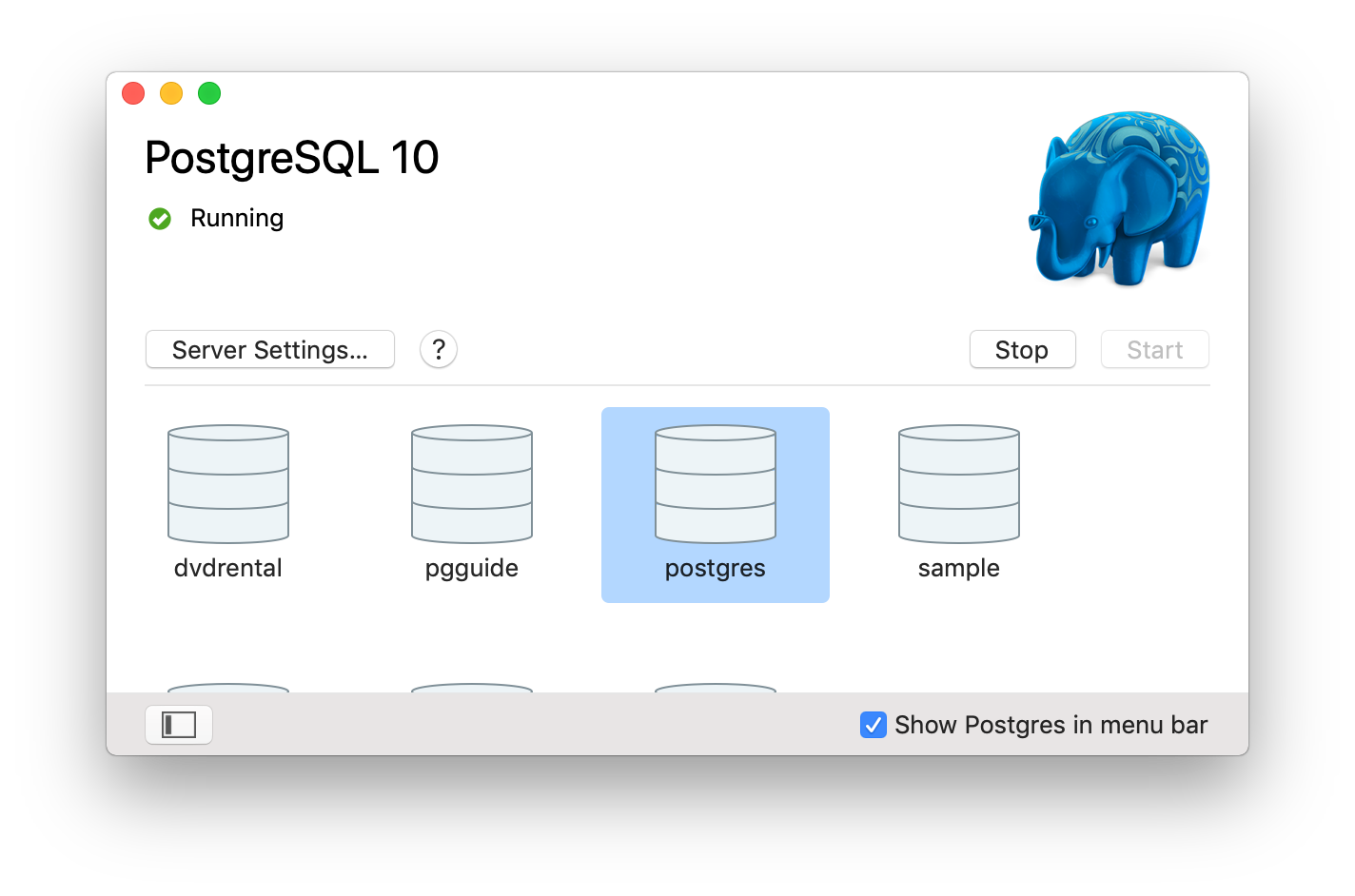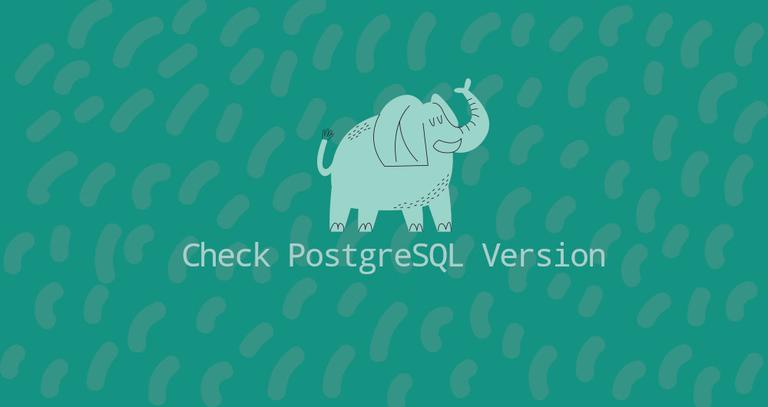
For more information on Homebrew Services, read this excellent blog post that explains how it works. If you use Check For Updates, it will show you new releases either bundled with the same single major version of PostgreSQL or all supported versions depending on the release you are currently running. If you don't have Homebrew Services installed, just $ brew tap homebrew/services de Updating Postgres.app Versioning Each version of Postgres.app is available with different major versions of PostgreSQL bundled. To verify that the local postgres daemon isn't running, check your installed homebrew services: $ brew services list Now you can use psql to connect to remote Postgres servers, and won't be running a local one, although you could if you really wanted to. Unfortunately, PostgreSQL can only link with a specific version of Python.
#Postgres.app specific version install
To use PL/Python with Postgres.app, you first need to install Python using the installers from. 🍺 /usr/local/Cellar/postgresql/9.6.5: 3,269 files, 36.7MB The default user created by Postgres.app is a superuser, so this shouldn’t be an issue in most cases. Or, if you don't want/need a background service you can just run: To have launchd start postgresql now and restart at login:

=> /usr/local/Cellar/postgresql/9.6.5/bin/initdb /usr/local/var/postgres


So the "correct way" to get the psql application is indeed to install the postgres formula, and you'll see toward the bottom of the "caveats" section that it doesn't actually run the database, it just puts the files on your system: $ brew install postgres Homebrew only really has the postgres formula, and doesn't have any specific formula that only installs the psql tool. To change which version of postgreSQL youre running, open the Postgres app and click the button in the bottom-left-hand-corner to show the sidebar.


 0 kommentar(er)
0 kommentar(er)
